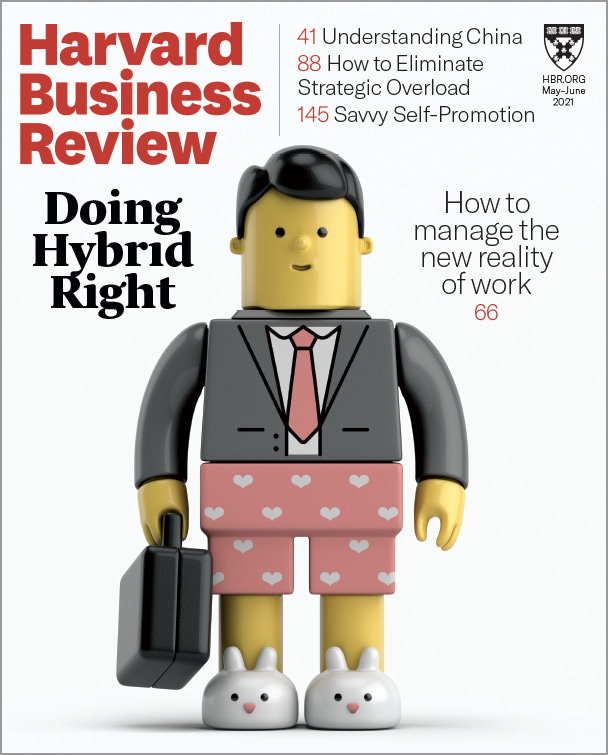We’re entering into a critical time for the evolution to the next stage of work. In the UK and the US vaccinations are going so well that businesses are starting to reopen with an optimism that we’ve maybe seen the last lockdown. As I saw someone tweeting on Sunday night ‘I’m hoping this is the last day in my lifetime that pubs will be closed!’ And as we emerge out of forced isolation, with an excitable hope of being reunited with people we’ve missed it’s inevitable that some firms will wonder if they should just plan to return to the old days. Or the old days with a slightly more relaxed attitude about one day a fortnight working at home.
The Guardian featured a rant from one writer saying that the ‘evidence was in and working from home had failed’. I’ve barely chatted to any business who have said that in the last twelve months. Firms have said ‘we’ve missed being together’, managers have said ‘we prefer having the team where we can see them’ but very few firms have said to me ‘our business is on its knees because of remote working’.
In fact one firm I chatted to last July who told me really clearly at that stage ‘the moment there are vaccines we are back in the office five days a week!’ this week updated me on their plans. ‘We’ve realised we can save a fortune on our (West London) office and we’ve planning to switch most people down to three days a week’. As I discuss on this week’s podcast cost-saving alone is the worst way to set about changing the way you work. If you start by thinking how best to set your team up for success, it is almost certain in the current climate it will involve a smaller office footprint and you’ll save money - but if you start with a plan to save money the decisions that come from it might be mixed up.
If one single thing is becoming clear is that we’ve not begun to see the impact on the commercial property market. As this City AM report details 38% of firms are looking to use less space and to clarify for anyone who wasn’t already aware of the trend - we started 2020 with two thirds of international firms mulling moving to hotdesks and smaller offices. Desk occupancy in offices was already low. Now firms are being given a clear reason to debate reducing their space. The New York Times reported this week that commercial real estate is set to collapse in value and truly I don’t think we’ve imagined half of this.
This could be 2008 part II - a total collapse in the value of commercial property and a tsunani impact striking the financial markets - as the headline says “Some big employers are giving up square footage as they juggle remote work. That could devastate building owners and cities.”
As commercial property prices fall so will the price of small residential units in city centres. All of those lavish apartments being built around Liverpool Street? Suddenly the value of being near the office is diluted as well as the supply quadrupled. It’s impossible to see how a 20% decline in the demand for commercial property won’t send urban residential prices falling.
Harvard Business Review (who I think give you 3 or 4 free articles a month - so click carefully) have published a guide to doing ‘hybrid working right’ which includes a study of some of the experiences of Fujitsu. As the writer, London Business School luminary Linda Gratton, emphasises ‘To make hybrid a success, you have to consider how work gets done’ - which has largely been a recurrent theme here over the last few months and might be reason to dig out the podcast discussion with Cal Newport again.
This article claims that two-fifths of workers have monitoring software installed on their laptops by their employers. Contact me (from your burner phone, natch) if it includes you.
How to be a good colleague in Ramadan
Ramadan starts this week, my partner is Muslim and I know all too well how brutal it is thirstily waiting for a 9.30pm sunset in the height of the summer. While an April/May Ramadan is marginally easier than June and July, if you have Islamic colleagues they may be going without food and water from dawn until 8.30pm. My good friend Hussain Manawer, the poet, has written a simple set of reminders of how any of us can be a better colleague or manager to someone who is observing Ramadan.
Shout out to Hussain for being featured on the BAFTAs this weekend too! Iconic.
"Most automation happens straight after recessions"
This week two discussions on the podcast. Firstly I talk to Callum Williams, Senior Economics Writer at The Economist. Callum just had a major report published in the paper about the future of work and we talk about the implications of it. I just relistened to it for a third time and it’s a brilliant discussion of where work is right now.
Then I have a fascinating discussion with CEO and podcaster Dan Murray-Serter. We talk about the news headline from this week’s newsletter - in other words we discuss what you’re reading now.
Listen: Apple / Spotify / website
Why giving yourself an untouchable day could be your route to incredible productivity - I had a week of these last week and it was heavenly for making progress with major projects
Don’t worry if you feel that the last year has irreparably broken you. If you’re feeling kebabed by work, meeting people seems to fix you quickly - lockdown fatigue is quickly reversed by social contact
"I learned the hard way that no publicly traded company is a family" - it’s astonishing how many times tech firms allow themselves to be on the wrong side of these stories, do they not train their managers? Here a woman was forced out of Google after the company’s HR department sided with her 26 year old manager for hitting on her
Gallup (who do the biggest global workplace survey) reveals a full breakdown of what Gen Z’s want from their jobs - it’s a good reminder of the changing expectations of the workforce
Tim Harford’s article about office work being a disaster for productivity is now available outside the FT paywall
Zoom-by-the-minute booths are coming to a shopping centre near you
Ha, did you see this already? Laetitia Vitaud tells you precisely why worrying about your productivity is an inhuman way to live (‘When you can measure productivity clearly, you’re a slave or a machine’, ‘Who owns the productivity gains? Most often, it’s not you, so what’s the point?’)
I wrote something about diverse meetings leading to better decisions for Slido - and also did a video version of it because I know how very very busy you are.
Photo by Amy Hirschi on Unsplash







